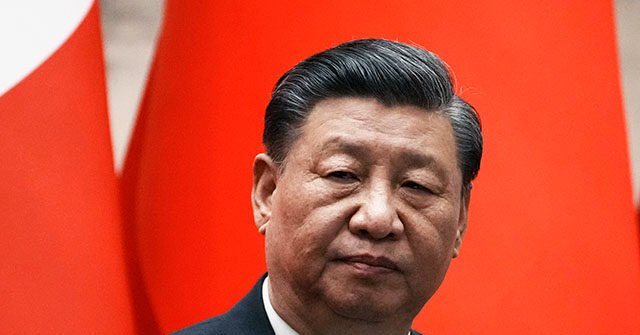On Thursday, the House Committee on Oversight and Reform, led by Republicans, released a concerning report detailing the Chinese Communist Party’s (CCP) political warfare against the United States. The findings suggest that the CCP has effectively entrenched itself within various sectors of American society, particularly highlighting a lack of strategic response from the Biden-Harris administration. Committee Chairman James Comer (R-KY) criticized the current leadership for being oblivious to the significant threat posed by the CCP, stating that the administration is unable to implement an effective counter-strategy against these political activities that aim to influence and manipulate American institutions and communities.
The committee’s investigation spanned 25 federal sectors and involved a series of hearings and briefings to assess how the Biden administration is addressing the CCP threat. The report concluded that there is no coordinated “whole-of-government” approach, leading to individual agencies being left to determine their responses, which has resulted in mostly inadequate or insufficient measures. With a stark warning, the report emphasized that the current situation is distinct from the Cold War era, as the adversary is operating within U.S. borders, infiltrating critical institutions, businesses, and cultural centers by fostering connections to influential elites.
Notable among the findings is the identification of personal links to CCP-related entities within the political sphere, with current Democrat Vice Presidential candidate Timothy Walz cited as someone with established connections that could render him vulnerable to CCP influence. This penetration into leadership roles raises concerns about potential biases in decision-making at high levels of government. The report noted that among the 25 federal agencies reviewed, only the Drug Enforcement Administration was found to be proactively acknowledging and addressing CCP infiltration, shedding light on the broader issue of official complacency across the federal landscape in terms of safeguarding against these operations.
The report highlighted alarming failures across numerous federal agencies to adequately confront the CCP’s influencing activities. The U.S. Department of Agriculture (USDA) appears to promote China as a key market while neglecting the need for safeguarding America’s food supply or monitoring Chinese purchases of farmland near military installations. Similarly, the Department of Commerce lacks initiatives to transparently address CCP infiltration of local governments and businesses, while the Environmental Protection Agency (EPA) continues to advance a green energy agenda, possibly under the sway of CCP-driven interest groups. The report noted issues at the U.S. Department of Transportation, whose representatives claimed there was no evidence of espionage concerning Chinese-manufactured infrastructure, even though such equipment transmits data to the CCP.
To counteract the CCP’s harmful influence, the report advocates for principled leadership capable of acknowledging and tackling the challenges posed by the infiltration of influential circles. By taking decisive action, federal agencies can begin to turn the tide against the CCP’s efforts to undermine American institutions, thereby safeguarding the country. The report offers concrete recommendations on how federal agencies can utilize existing resources to enhance their protective measures against CCP activities, emphasizing an urgent need for a unified response to this pressing threat.
Historically, the Trump administration recognized China as the primary national security threat; however, the Biden-Harris administration appears to have shifted focus. When questioned about pressing threats to national security, Vice President Kamala Harris cited Iran, contrasting with ongoing concerns regarding the CCP and its expansive influence over critical sectors in the U.S. This marked divergence raises questions about the administration’s priorities, especially in light of its failure to address the more immediate and far-reaching implications of the CCP’s operations within American borders. The report underscores the necessity of revisiting and recalibrating national security strategy in light of these findings to ensure that the American populace is adequately protected against foreign influence.

